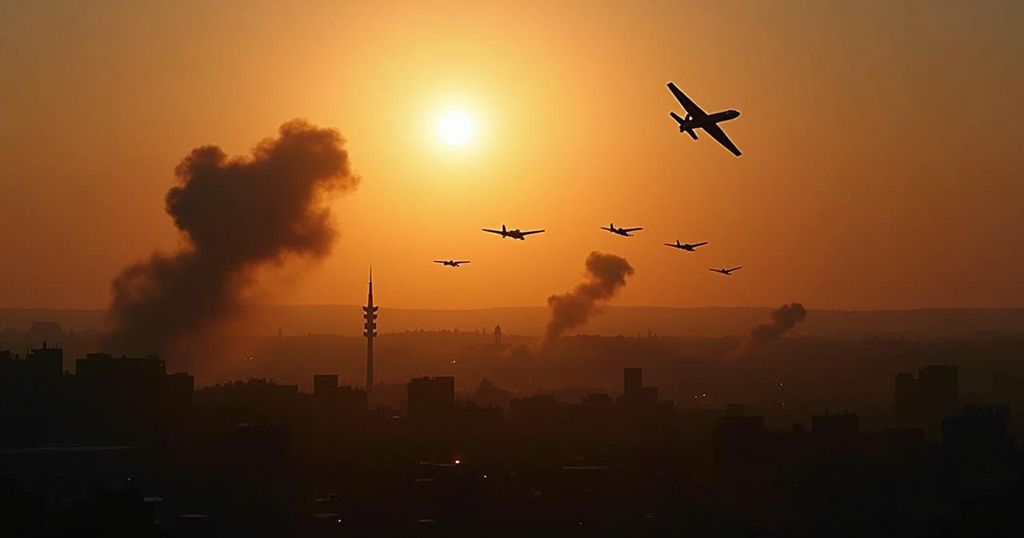Escalating Violence: Israeli Airstrikes Impact Lebanon and West Bank

In a series of recent airstrikes, Israeli forces targeted southern Beirut, aiming at Hashem Safieddine, a key Hezbollah figure, amid ongoing military operations in the West Bank that resulted in the deaths of 18 Palestinians during a strike on a café. The situation has drawn sharp criticism for exacerbating violence and violating international law.
Israeli aircraft have conducted extensive bombing operations in southern Beirut, targeting residential buildings within the city’s suburbs, resulting in significant destruction and civilian casualties. According to reports by the Axios news outlet, the Israeli military aimed to eliminate Hashem Safieddine, who has been identified as a cousin of the late Hezbollah leader Hassan Nasrallah, during an airstrike on Wednesday evening. Safieddine, viewed as a potential successor to Nasrallah, is believed to have been hiding within a fortified underground location, although it remains uncertain whether he sustained injuries or was killed in the assault. The United States State Department designated Mr. Safieddine as a Specially Designated Global Terrorist in 2017. Concurrently, the Israeli military announced the death of Zahi Yaser Abd al-Razeq Oufi, an alleged Hamas leader, during a separate strike in the Tulkarem refugee camp located in the occupied West Bank, where at least 18 individuals perished following an aerial assault on a crowded café – marking one of the gravest air attacks in that region in over twenty years. The Palestine Liberation Organisation’s spokesman, Rawhi Fattouh, denounced these attacks as counterproductive to regional security, stating that they would only inflame further violence. He characterized the strikes as “bloody, criminal aggression” and an egregious violation of international and humanitarian law. As tensions continue to escalate across the Middle East, including ongoing Israeli attacks in Gaza and Lebanon, the situation remains volatile, warranting continued observation and analysis.
The ongoing conflict between Israel and Palestinian militant groups has intensified, leading to a series of airstrikes and retaliations. Israel’s military operations often target individuals it deems as threats to its national security, an approach that has drawn considerable criticism for potential violations of international law regarding civilian safety. The designation of individuals such as Hashem Safieddine as terrorists by international bodies adds complexity to the military strategies employed by Israel. Furthermore, the humanitarian impact in densely populated areas such as the West Bank and Lebanon contributes to the cycle of violence and retaliatory actions, perpetuating unrest in the region.
The recent Israeli airstrikes in southern Beirut and the West Bank reflect the severe and escalating nature of the conflict in the Middle East. The dual attacks targeting key figures in militant groups raise significant concerns regarding civilian casualties and the implications for regional stability. The calls for accountability and condemnation of such military actions underscore the complexity and volatility of the situation. Continuous monitoring of events is essential as the region faces growing unrest and the potential for further violence.
Original Source: www.aljazeera.com








